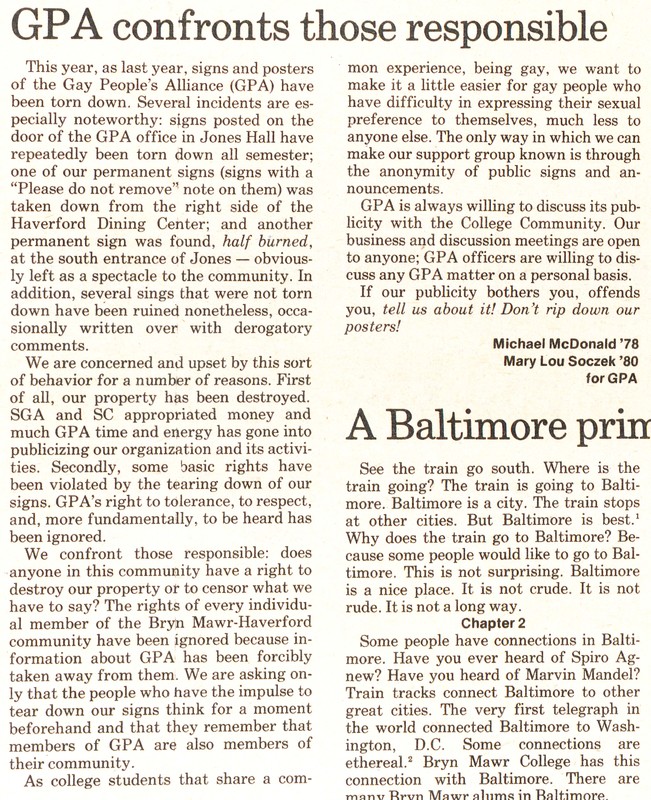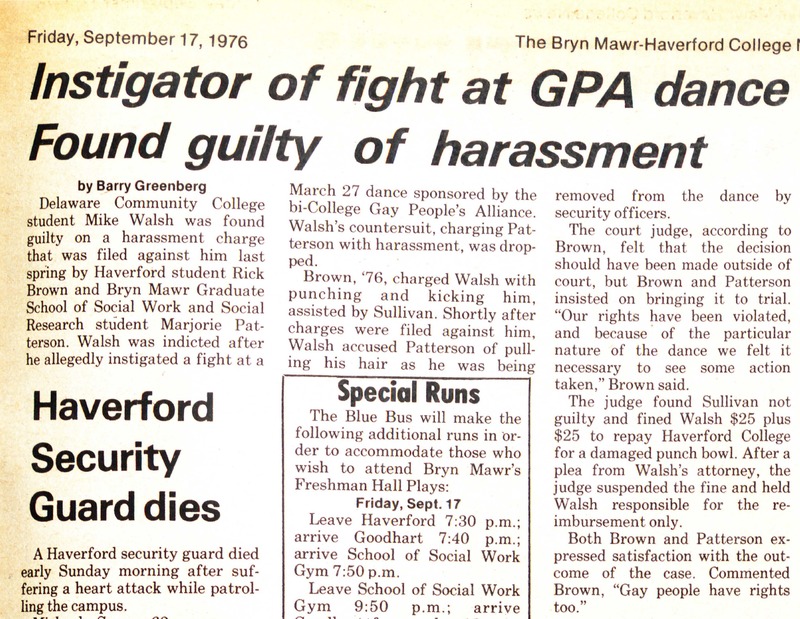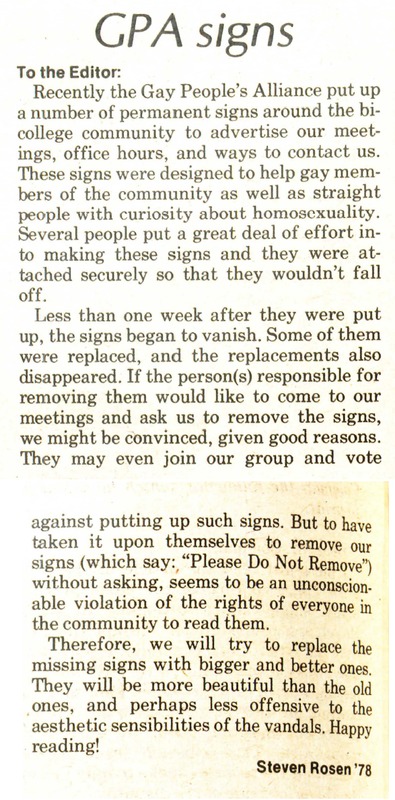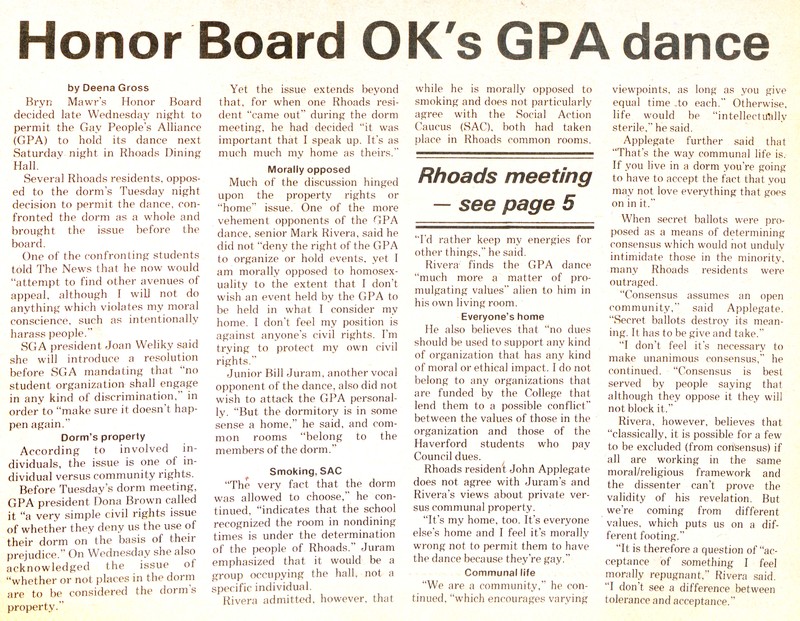Growing Difficulties
With the growth of a student group, instances of homophobia and intolerance became more visible within Haverford's archival narrative, possibly because there was now a group there to resist these instances and provide records for them. These instances provide insight into the darker and less accepting undercurrent of Haverford's community at this time.
An element that appears in this era and continues for many years is the difficulty the GPA had in putting up and keeping up signs. In one case, GPA signs were even burned. The following two articles demonstrate these difficulties.

Read another article about GPA signs here.
In the Fall of 1977, the GPA moved to hold one of its dances in Rhoads Dorm on Bryn Mawr's campus. By this point, GPA dances were some of the most popular and well-attended events on campus, and one of the main acitivities hosted by the GPA.
However, there was a great deal of controversy surrounding the dance being held in the residential space of Rhoads. Read the article below about the debate surrounding the dance.
The GPA Dance in Rhoads brought out many tensions and intolerant views within the Bi-College community. On the converse, many articles were written covering the support, opposition, and general viewpoints of the controversy.
One event-- a multi-hour Rhoads dorm meeting on the issue -- was covered extensively in an article that you can read here, which includes a student analogizing the GPA to the Klu Klux Klan. Other coverage, opinion pieces, and editorials can be read in these following articles (One, Two, Three, Four).
"During the Rhoads-GPA dance controversy, there was a great deal of hedging by opponents of the dance; why would no one say that homosexuality was morally repugnant, a disgusting practice which undermines society's moral fiber and which needs to be discouraged (there were those there, I know, who held these convictions)? Why would no one say that though homosexuality should be tolerated, it certainly should not be encoraged? Why would no one say that homosexuals today, far from living "in the closet," flaunt their fetid lifestyles in our faces and turn our stomachs? Why would no one speak up to tell homosexuals to go back in their closets? Clearly, because they feared the inevitable savage and overwhelming reaction, a response so concerned with being "tolerant" towards gays that it would neglect to be tolerant towards other points of view." -- Read the full article here, and responses to it here and here.


